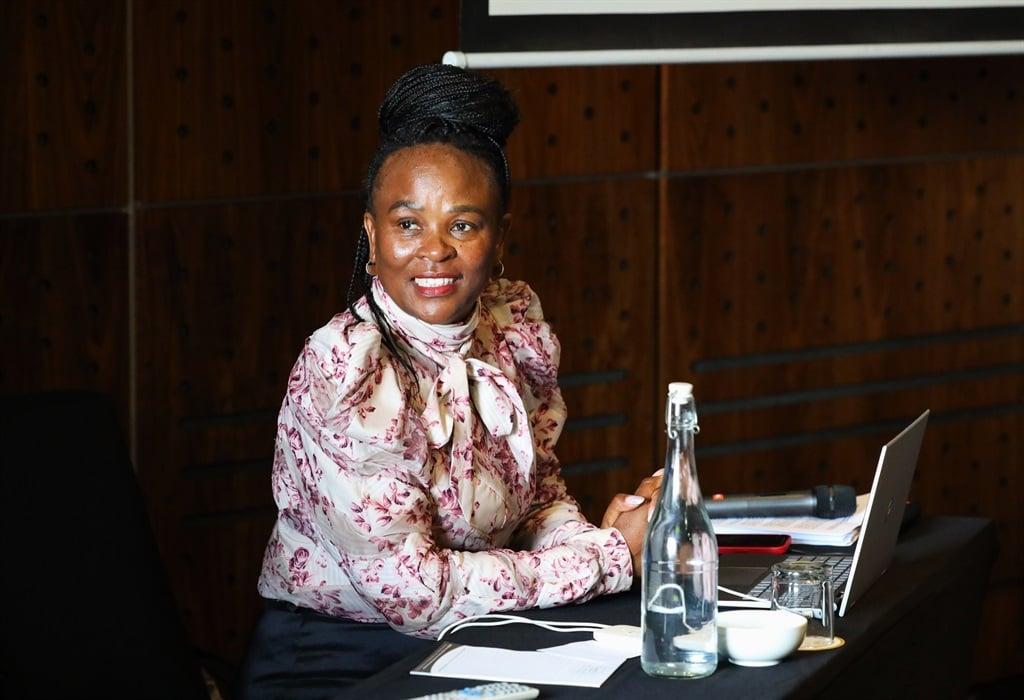
Africa-Press – South-Africa. The votes to remove Public Protector Busisiwe Mkhwebane and to appoint her successor, Kholeka Gcaleka, will no longer take place on the same day.
Last week, the National Assembly Programming Committee (NAPC) agreed that both these votes would take place on Monday, 11 September, at a fully physical sitting of the National Assembly in the Cape Town City Hall.
The voting would take place according to the roll call voting system. This is the same voting system the National Assembly used for the vote on President Cyril Ramaphosa’s impeachment over Phala Phala, where each member must personally indicate their vote.
Last week, IFP chief whip Narend Singh said they should prepare for a late night. However, at Thursday’s NAPC meeting, ANC chief whip Pemmy Majodina said, after last week’s meeting, she had gone back to the records on the Phala Phala vote, and had found that the debate on the report and the voting took three and a half hours.
“Given the venue and its uncomfortability, the City Hall, we are proposing as the ANC, let’s consider one order paper on the day, and defer the appointment of the PP (Public Protector) to a later day,” Majodina proposed.
This was agreed to, and Singh said, to laughter: “I’m humbled that people do listen to me sometimes in this committee.”
The proposed date for Gcaleka’s appointment is 21 September, at a yet to be determined venue.
Meanwhile, ATM leader Vuyolwethu Zungula wrote a letter to National Assembly Speaker Nosiviwe Mapisa-Nqakula, asking that Mkhwebane’s impeachment vote be by secret ballot. UDM leader Bantu Holomisa also wrote to Mapisa-Nqakula, endorsing Zungula’s request.
Along with the EFF, both the ATM and UDM backed Mkhwebane during the impeachment proceedings, often supporting her attempts to filibuster. Holomisa also brought an unsuccessful application for the evidence leader advocate Nazreen Bawa SC’s recusal, based on discredited allegations against her by suspended Western Cape Judge President John Hlophe’s lawyer, Barnabas Xulu.
The voting method was agreed to at last week’s NAPC meeting, and neither the ATM nor the UDM raised an objection. It was also not raised at Thursday’s meeting.
Parliament is constitutionally obligated to conduct its business with transparency. However, the Speaker has the discretion to allow for a secret vote if the political climate warrants it.
Zungula said, in a letter dated 4 September, that it would be “extremely irrational” for Mapisa-Nqakula to allow an open vote.
He asked Mapisa-Nqakula to inform him of her decision expeditiously, “so that, in the event of a decision not to grant the request, we may have sufficient time to take appropriate legal steps to reverse your decision”.
He also requested that Mapisa-Nqakula postpone the vote. The ATM has a history of unsuccessfully litigating to force votes by secret ballot in the National Assembly.
Mkhwebane’s term of office expires on 14 October.
Both her impeachment vote and Gcaleka’s appointment vote require special majorities.
A two-thirds majority is required to remove the Public Protector, while a vote of 60% in favour is required to appoint a new one. It is expected that both these majorities will be achieved.
The ANC, DA, IFP, Freedom Front Plus and African Christian Democratic Party indicated their support for Mkhwebane’s removal, and their votes should comfortably reach the two-thirds majority threshold. This, of course, depends on the benches being filled and MPs toeing the party line.
The selection of Gcaleka will be closer. The DA, EFF and FF Plus have indicated that they will not support her nomination, and, had it not been for the IFP indicating its support, it could have been tough going for the ANC to garner the required 240 votes.
The ANC reportedly called for a three-line whip, a strict instruction from a party’s whippery that all members must attend a vote and that they must vote according to the party line.
For More News And Analysis About South-Africa Follow Africa-Press





